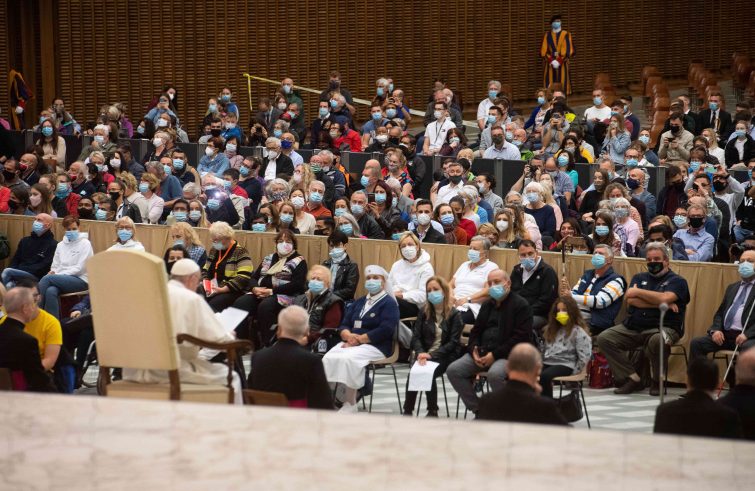
“In the soul of those who pray, the sense of their own weakness is more precious than moments of exaltation, when it seems that life is a series of victories and successes”. Pope Francis said this in today’s general audience catechesis – the first in the Paul VI Hall after the lockdown – devoted to the figure of Elijah, “one of the most compelling characters in the whole of Sacred Scripture”. A man who “appears suddenly”, “without a precise origin, and above all without an end, taken up into heaven: for this reason, his return was expected before the coming of the Messiah, as a precursor”. “Prayer is the lifeblood that constantly nourishes his existence”, Pope Francis said about this “man of crystalline faith, a man of integrity, incapable of petty compromises”. He is “the example of all people of faith who know temptation and suffering, but do not fail to live up to the ideal for which they were born”. “This always happens in prayer”, the Pope explained off the cuff: there are “moments of prayer that we feel lift us up, even of enthusiasm, and moments of prayer of pain, aridity, trial. This is what prayer is”: “letting ourselves be carried by God, and also letting ourselves be struck by unpleasant situations and even temptations”, Pope Francis remarked. “This is a reality found in many other biblical vocations, even in the New Testament. Think, for example, of Saint Peter and Saint Paul. Their lives were like this too: moments of exaltation and moments of low spirits, of suffering”.
